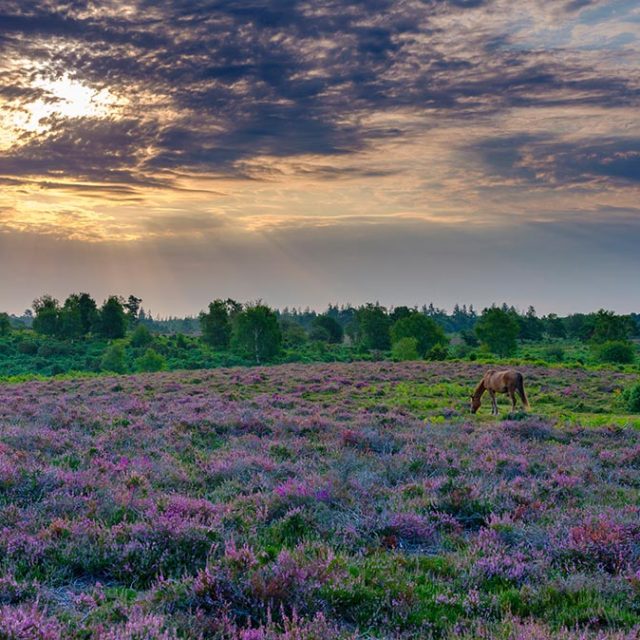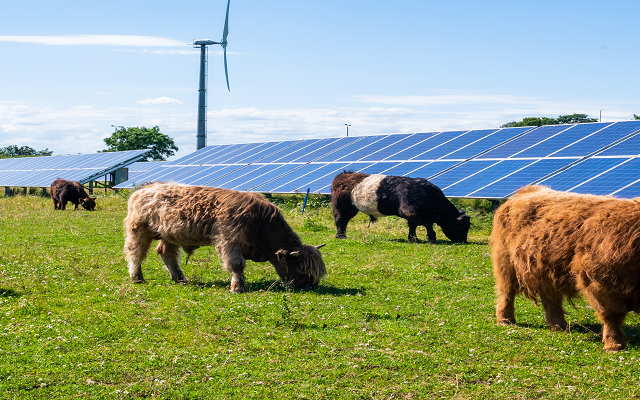Land Business Update | Week Commencing 4th March 2024
Farming
Agricultural transition in England – net income from agri-environment schemes is growing
Net income, after deduction of the variable and fixed costs of the environmental management, has risen by 73% across all types of farm since 2020/21, according to the latest data from Defra.
| £ net income per farm per year | 2020/21 | 2022/23 | % change |
| All types of farm | 5,300 | 9,200 | 73% |
| Cereal farms | 5,400 | 11,600 | 113% |
| Lowland livestock farms | 3,700 | 6,600 | 76% |
| Upland livestock farms | 10,400 | 12,900 | 24% |
| Dairy farms | 5,400 | 7,400 | 36% |
Even more interestingly, it is the highest performing farms that earn the most from environmental schemes, with their net income increasing from £9,700 per year to £15,000 (a 56% increase), compared with the low performing 25% of farms which earn £4,000 per year, up 138% from £1,700. For the high performers, the increase in net income has offset almost 60% of the reduction in Basic Payments to date.
Farming Equipment and Technology Fund 2024
This ‘umbrella’ for a number of grant schemes will include the following for 2024:
- Improving productivity for all types of farm and forestry (up to 60% grant for direct drills, yield monitoring, forage crop analysers etc. It is a long list of eligible items).
- Slurry management (up to 60% grant for slurry collection and storage, testing and application).
- Improving animal health and welfare (up to 50% grant).
Please contact Jonty Armitage, our head of farming, for further details.
Hedgerows to continue to be protected in England
The government has, finally, responded to its consultation on whether and how to replace the protections for hedgerows that were previously under the EU’s cross compliance framework. The previous protections will be replicated, with the main features being:
- No cutting between 1st March and 31st August to protect nesting birds and their chicks. There is likely to be an exemption for cutting in August for certain crops, with prior notification, although many birds and mammals such as dormice are still nesting.
- Maintain a green cover (or buffer) of two metres from the centre of a hedgerow on each side.
- A ‘simpler, fairer and more proportionate approach to enforcement’, with the RPA as the regulator.
Hedgerows are, on many farms, the most important habitats and corridors for wildlife. The People’s Trust for Endangered Species has published some useful tips for wildlife-friendly hedge management:
- Leave hedge cutting until January at the earliest.
- Aim to cut established hedges no more than once every three years.
- Cut hedges 10cm higher and wider than the previous trim line.
- Distribute cutting across a site so resources aren’t all removed from a single location in one go.
- Cut young hedges yearly for the first five or so years after planting.
Banned neonicotinoid treatment for sugar beet given emergency approval – again
The approval was granted after independent assessment using Rothamsted Research’s forecasting model that 65% or more of the crop could potentially be affected by virus yellows. This is the fourth year in a row that an emergency approval has been granted, prompting environmental organisations to call the ban a ‘mockery’. They also called for farmers to be given more support to grow sugar beet without resorting to chemicals, which the industry pledged it would do, and for the government to publish the long-delayed strategy on sustainable pesticide use, which, ahem, it says is coming ‘shortly’.
Forestry
New ‘fast track’ 12-week process for woodland creation schemes on low sensitivity land
The application process applies to England Woodland Creation Offer (EWCO) applications with at least 90% of land located on low sensitivity land. This is great news as our experience has been that many applications take well over 12 months to be approved. The process relies on applications being complete and correct and compliant with the UK Forestry Standard (UKFS).
Higher woodland creation payment rates coming
The new payment rates will be announced later this spring but are expected to include a new payment to encourage EWCO applications on low sensitivity land; a new payment option to encourage highly biodiverse woodlands next to existing ancient woodland; an uplift to some of the water, flooding and access additional contributions. There will also be higher maintenance payments.
Tree Health Pilot 2024 (North West, West Midlands, South East and London)
The 2024 options for this English grant, which aims to test different ways of slowing down the spread of pests and diseases, have been published. They include grants for:
- Spruce growing in the high-risk area for eight-toothed spruce bark beetle (Ips typographus)
- Sweet chestnut with Phytophthora ramorum or sweet chestnut blight
- Oak with oak processionary moth (OPM) in the established area
- Ash with ash dieback
This is a competitive scheme and the Forestry Commission expects to fund around 100 agreements. It makes payments for towards the costs of carrying out work, for example to remove and replace diseased trees. Contact Hugh Williams in our forestry team if you would like to discuss pest and disease management.
Property and rural economy
Converting commercial property to residential – positive changes to Class MA permitted development rights
Class MA permits the change of use of commercial, business and service buildings to dwellings. Recent changes, from 5th March, are that the commercial building no longer needs to have been vacant for three months before applying and that the limit on the floorspace to be converted has been removed (it was previously 1,500 square metres). NB Other requirements and exclusions remain and should be checked as part of the assessment of whether a building is suitable for change of use. Please contact Alice Robinson if you would like to discuss this and other permitted development.






